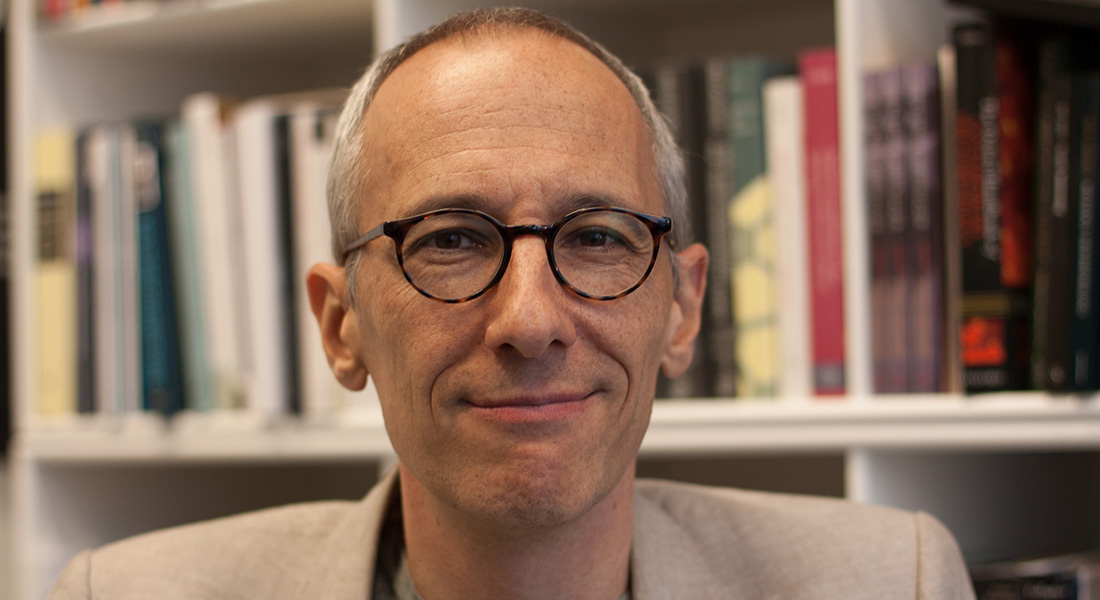Selfhood is a precondition for true community
In his new book Being We, Professor Dan Zahavi shares the results of five years of research into communal experience. He argues that being part of a we requires an experiential anchoring; an identification with the group that affects one’s own self-identity.

Comedian Groucho Marx famously once said that he did not wish to be a member of any club that would accept his membership. Marx’ comment, joking aside, highlights a key aspect of the communal experience; that you cannot be a member of a we, a community, without somehow endorsing that membership yourself.
- By birthright, we may belong to a variety of groups such as class, ethnicity or blood type, but group memberships that can be determined on the basis of objective markers are not particularly useful when trying to understand what it means to be part of a we, says Professor Dan Zahavi from the University of Copenhagen.
Professor Zahavi’s new book Being We: Phenomenological Contributions to Social Ontology explores what it takes to constitute a we with others and how being part of a we affects one’s sense of self. He adds:
- It is important to understand that a we is a particular kind of social formation distinguishable from e.g. the ones based purely on shared objective features inasmuch as you can be a member of such a group – possessing citizenship, for example – without ever having decided to. To be part of a we, you have to experience yourself as one of us. It involves subjective endorsement.
Community first?
In many recent scholarly accounts of the collective and the self, however, the collective is considered prior to the individual. Some go even further and claim that the self is nonexistent, but Dan Zahavi is skeptical of such claims:
- There is no doubt that communities and groups are extremely important to the values and beliefs we form over the course of our lives. No one disagrees with that. The problem is that the great importance that communities have for us also leads many to assume that our self-identity depends solely on the group or groups we belong to, says Dan Zahavi and continues:
- But we need to be careful here: While some dimensions of self are clearly social and first established through socialization, a proper appreciation of our experiential life also has to recognize its intrinsic subjectivity. The experiences we as human beings have involve a point of view, they come with perspectival ownership, and this feature is not a social construction.
Selfhood, argues Zahavi, is both what allows us to mark our difference to others and what permits us to share a perspective with them. To deny the self is real is by the very same token to deny the reality of the community.
- In other words, if you eliminate the first-person singular, you also lose the first-person plural.
I, we – and you
Even though one has to identify with a we in order to become a member, it is not, Dan Zahavi points out, sufficient for obtaining membership. Since a we obviously consists of more than one member.
So if we wish to understand what it means to share a belief, an intention, an emotional experience or, more generally, a perspective with others, we also need to look at how we come to understand and relate to others in the first place.
- To understand the nature of a we, it is not enough to look at the relation between I and we. We also have to look at the relationship between the members of a we. And here second-person engagement and the communicative intertwinement it allows for is of crucial importance, says Dan Zahavi and concludes:
- There are, of course, important differences between dyadic kinds of we where the members know each other in person and the kinds of large-scale we, like religious communities or national communities, whose members have never met, but who are nevertheless united via shared rituals, traditions and normative expectations. But the latter would never have become possible were it not for the direct, embodied, experiential sharing that we find in the I-you relationship.
Being We: Phenomenological Contributions to Social Ontology has been published by Oxford University Press
Contact
Professor Dan Zahavi
Centre for Subjectivity Research
University of Copenhagen
E-mail: zahavi@hum.ku.dk
Mobile: +45 27 62 19 43
Press officer Carsten Munk Hansen
Faculty of Humanities
University of Copenhagen
E-mail: carstenhansen@hum.ku.dk
Mobile: + 45 28 75 80 23
